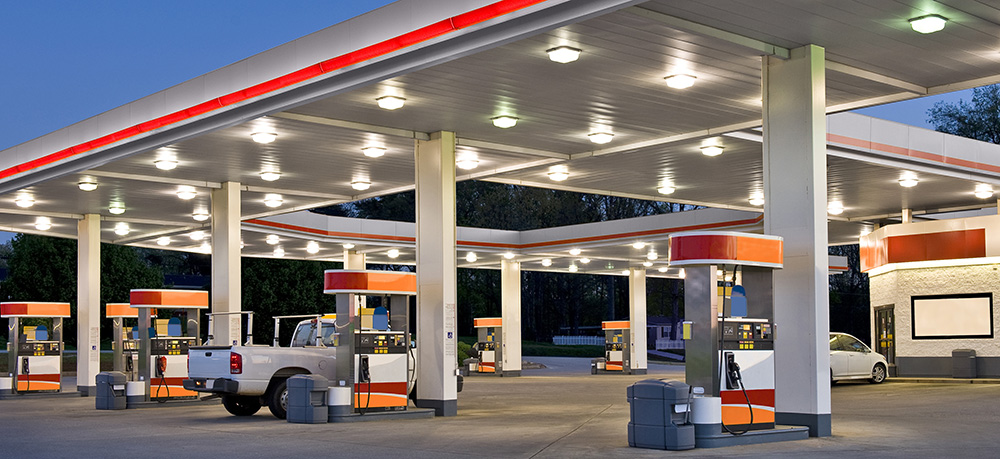Decommissioning Stage II Vapor Recovery Systems at Gasoline Dispensing Facilities

Today 93 percent of vehicles on the road have equipment that controls emission of hazardous air pollutants during refueling. Because Stage II vapor recovery systems at gasoline dispensing facilities interact with these vehicles to actually produce more emissions, the U.S. Environmental Protection Agency has determined that states may allow decommissioning of these systems.
The Pennsylvania Department of Environmental Protection has finalized regulatory requirements to allow gasoline dispensing facility owners and operators to decommission Stage II vapor recovery systems in 12 counties in the Pittsburgh and Philadelphia areas.
The regulation is in-effect as of March 26, 2022.
The regulation retains some elements of the Stage II program to limit volatile organic compound emissions. For these and other basics, see below. For detailed information on the proposed regulation:
FAQ
When does the proposed Stage II recovery system decommissioning regulation go into effect? March 26, 2022
When must gasoline dispensing facilities complete their Stage II decommissioning? By December 31, 2022
Who is affected by this regulation?
- Owners and operators with gasoline throughputs that ever exceed 10,000 gallons per month (120,000 gallons/year) and independent small business marketers of gasoline that have had a monthly throughput greater than 50,000 gallons per month (600,000 gallons/year) in these 12 Philadelphia and Pittsburgh area counties:
- Allegheny, Armstrong, Beaver, Bucks, Butler, Chester, Delaware, Fayette, Montgomery, Philadelphia, Washington, Westmoreland
- Persons performing decommissioning procedures, leak testing, and repairs at gasoline dispensing facilities.
What are the decommissioning requirements for Stage II vapor recovery systems?
Overall requirements:
- Vacuum-assist systems must be decommissioned by December 31, 2022.
- Vapor balance systems will be allowed to decommission, but this is not required.
- Decommissioning will follow PEI/RP300-09 in the Petroleum Equipment Institute’s “Recommended Practices for Installation and Testing of Vapor-Recovery Systems at Vehicle-Fueling Sites,” Chapter 14.
- Decommissioning must be performed by a certified UMI or UMX storage tank installer under
Pa. Code Title 25, Chapter 245, Subchapter A.
- After decommissioning is completed,
form 2700-FM-BAQ0129 must be completed and sent to the appropriate DEP Regional Air Program Manager.
Equipment and inspection requirements:
- For existing dispensers, low permeation hoses must be installed by March 26, 2024, and ECO nozzles must be installed by May 14, 2024. When a gasoline dispensing facility begins operation or a dispenser is replaced after March 26, 2022, low permeation hoses and ECO nozzles must be installed immediately.
- Continuous pressure monitoring installation and use will be allowed as a compliance alternative to annual leak testing requirements. This requires installation of an enhanced Stage I system.
- Staff at gasoline dispensing facilities self-inspect key components for tightness after each gasoline fuel truck delivery and other components monthly.
- Electronic record storage that is accessible to a DEP inspector at the facility will be allowed.
Please note: The above videos are third party products and not endorsed by DEP. These videos are for educational purposes only.
Q. What phone number, e-mail address or social media account should I place on my operating instructions which is required to be conspicuously posted on my gasoline dispensing system?
A. If your gasoline dispensing facility is located in Bucks, Chester, Delaware or Montgomery County please use 1-866-277-7376. If your gasoline facility is located in Philadelphia County, please use 215-685-7580 during normal business hours, and 215-686-4514 at all other times. If your gasoline dispensing facility is located in Armstrong, Beaver, Butler, Fayette, Washington or Westmoreland County, please use 1-412-442-4000. If your gasoline dispensing facility is located in Allegheny County, please use 1-412-578-8115.
Leak testing requirements:
- Annual vapor leak tests will still be required.
- The Static Pressure Performance Test Procedure (CARB TP-201.3), the Tie-Tank Test Procedure (CARB TP-201.3C), and the Pressure/Vacuum Vent Valve Test Pressure (CARB TP-201.1E) must be performed annually.
- If the Static Pressure Performance Test Procedure fails and requires a repair or correction to pass, the test must be performed every 6 months until two consecutive once-in-every 6-month tests pass.
- The Static Torque of Rotatable Phase I Adaptors Test Procedure must be performed annually for gasoline dispensing equipped with rotatable adaptors.
Why is this regulation important to Pennsylvanians?
Improperly maintained gasoline dispensing facilities can emit large amounts of gasoline vapors. These vapors can become concentrated in urban centers and contribute to higher concentrations of ground-level ozone and hazardous air pollution, both of which are harmful to human health.
The ECO nozzles and low-permeation hoses required by this rule reduce gasoline evaporation. ECO nozzles also limit small spills that add up to be a considerable amount of gasoline. The gasoline from these spills finds its way into surface and ground water.
Contact Us
If you have any questions about the Stage II vapor recovery system decommissioning regulation, contact the DEP Bureau of Air Quality at
RA-EPStageII@pa.gov.